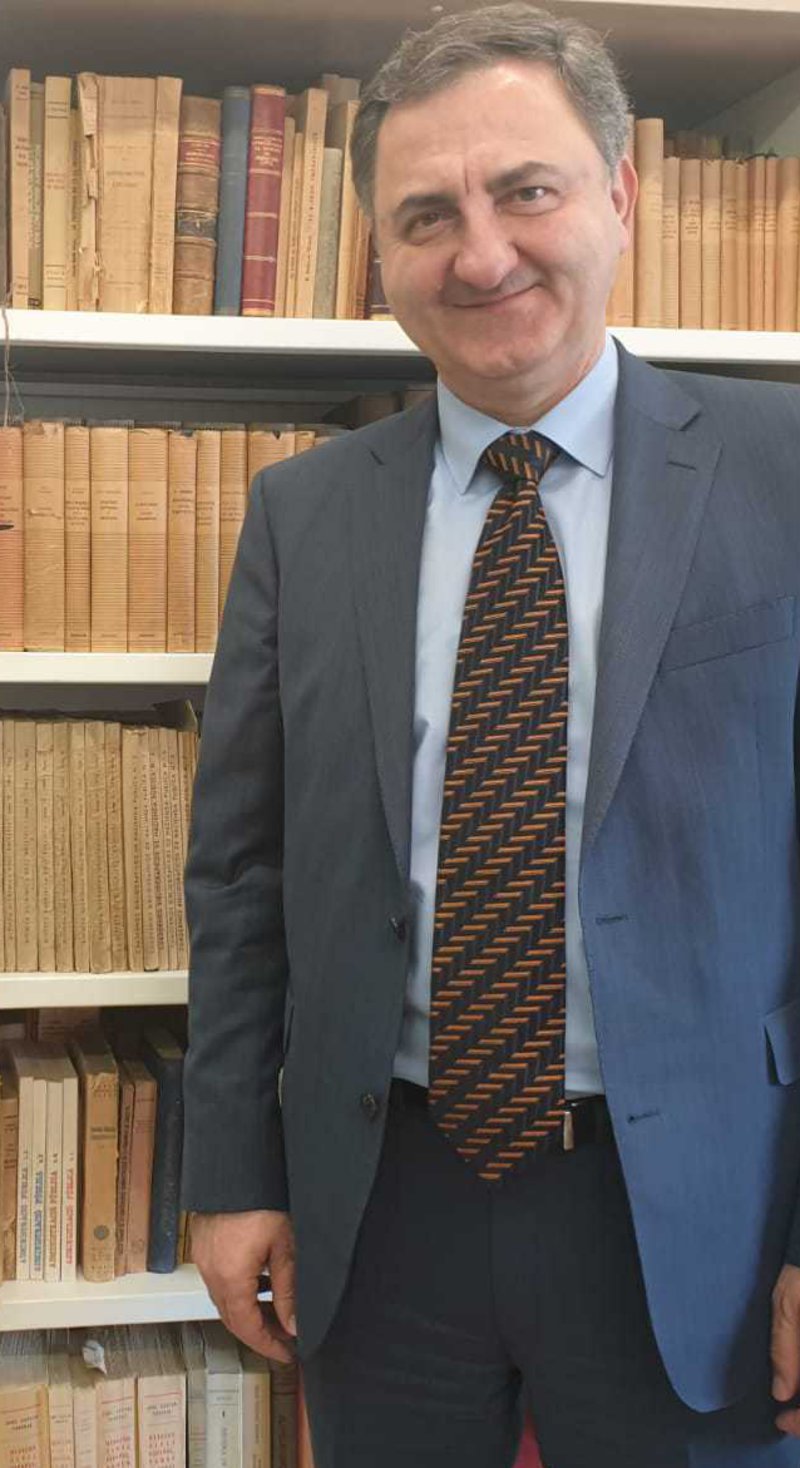Chanturia is Georgian and, as well as being a civil law professor at the University of Tbilisi since 1995, he was his country’s minister of justice in 1998 and 1999, the president of the country’s supreme court from 1999 to 2004, and its ambassador to Germany from 2014 to 2018. Since then, he has worked at the European Court of Human Rights, which is based in the French city of Strasbourg. We gave him a copy of the Punt Avui affiliated publication, La República, at the law faculty a few minutes before he attended a doctoral thesis by Lela Janashvili on the illegal trafficking of people, supervised by lawyer and doctor in administrative law, Roser Martínez. Chanturia defends the role of the court and the importance it holds for many countries that are not part of the European Union, and ensures that the work carried out by this institution is absolutely necessary and independent. He works to uphold the transparency of the court and for states who signed the convention to accept its sentences.
What is the current role of the international court in Strasbourg?
It’s the most important institution in the field of human rights. The court oversees the protection of human rights for more than 800 million people. There are a total of 47 European states, and the main function of our court is to protect the human rights of each of these individuals.
How is it structured? How many people work there?
There are 47 judges, and each one represents a different country. I represent Georgia, but each judge is independent.
What does that mean?
That our role as judges is not to represent our country.
What are the best known rulings that have been issued by the court?
All human rights are included in the European Convention on Human Rights. Freedom of expression, freedom of religion, private freedom, family life,... to give just a few examples. Each week our court tackles different cases in many countries and, of course, the defence of human rights is at the centre of our work. We are very transparent, all rulings are published on the internet, and we have a large volume of work. The results of our rulings are accepted by the member states, and that is very important. We are in permanent dialogue with the states.
If I consider that my rights have been violated in a trial in my state, can I appeal to the Strasbourg court?
Exactly. That’s what the court’s there for. When citizens think that their rights have been violated in a trial by their state, they can appeal to our court.
When we talk about the trial of the Catalan political leaders in the Supreme Court, appeals are often made to Strasbourg. There is a certain, let’s say hope, that what cannot be resolved in Madrid can be in Strasbourg. Is that true? Is it fairer than the Spanish courts?
That’s the normal way to do it. And no, I wouldn’t say that Strasbourg is fairer than the Spanish courts. All paths must be exhausted in the local courts and then, if a party is not satisfied, it can go to Strasbourg. And then your case will be examined and checked to see whether it meets the standards of the European convention. Nobody knows what will happen. It’s impossible to know. This is the kind of dialogue we have with member states.
The case of the Catalan political leaders has had a huge media impact. Media around the world are following their case. Is this trial being followed in Strasbourg?
There aren’t only the cases from the Spanish courts. As I said, we have 47 states, and the court is responsible for all member states and all rights. Freedom, freedom of expression, ensuring there has been no torture, the right to life, that there are no cases of slavery, that there is no discrimination. And, of course, the court faces difficult decisions.
So its role is pretty much to reprimand states...
It’s true that we’re always facing problems, and very different ones, and normally the states are not happy with the outcome.
Are the judges working in Strasbourg happy with the results? That is, with sentences being fulfilled?
The team of judges that work there is a very professional one and represents a selection of the best judges. The general tendency is for the member states to accept their sentences.
Would it be possible to accept pressure from states?
That would be impossible! And, in fact, it’s what makes it really unique. I’m proud to be part of this court. We have more than 800 million people who trust us to protect their human rights.
interview

